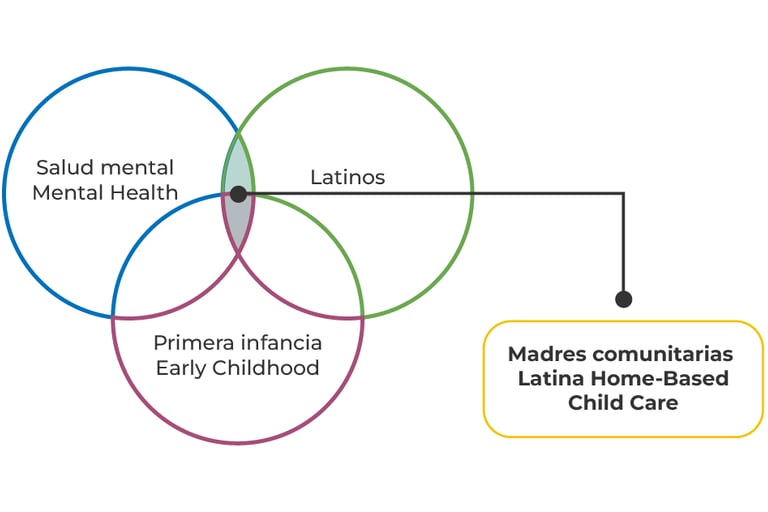

Understanding the Intersection of Mental Health and Hispanic Heritage in the field of Early Childhood 🧠👶
October is Mental Health Month, coinciding with the conclusion of Hispanic Heritage Month. This intersection highlights the vital role of Latina caregivers in early childhood education and the urgent need to address their mental health.
The Role of Latina Caregivers
Latina Home-Based Child Care Providers are essential to nurturing and educating young children. Often unregulated and isolated from formal early education systems, they frequently serve as the only accessible and affordable option for families. Despite their importance, the mental health of these caregivers is often overlooked, even as they face immense pressures.
Bilingual Education: They help children develop language skills in both English and Spanish, which are crucial in today's diverse society.
Cultural Education: By sharing traditions, stories, and practices from their heritage, they foster appreciation for diversity from an early age.
Vibrant Learning Environments: They incorporate music, art, and culinary experiences rooted in their culture, supporting cognitive development and instilling a sense of identity and belonging.
This culturally responsive approach nurtures empathy and understanding, equipping children to thrive in a multicultural world.
Unique Challenges Faced by Latina Caregivers
Latina caregivers encounter specific challenges, including:
Economic Hardships: They often experience higher rates of poverty, lack of access to resources, and low pay.
Multiple Responsibilities: Juggling child care, household duties, and financial support for their families can lead to significant stress and burnout.
Cultural Expectations: A strong sense of duty to family and community can increase pressure, leading to neglect of their own mental health.
Barriers to Support: Language barriers and immigration status can further limit their access to mental health resources.
The Impact of Isolation
Many Latina caregivers work in solitary conditions, leading to feelings of loneliness and disconnection. The lack of a supportive community makes it difficult for them to share their experiences or seek help. Additionally, cultural stigma surrounding mental health can prevent them from discussing their struggles, perpetuating a cycle of silence.
The Need for Support
To address the mental health needs of Latina family child care providers, initiatives like Mente sana, corazón fuerte: serie de bienestar para la mujer (Healthy Mind, Strong Heart Wellbeing Series for Women) are essential. This series aims to:
Promote Community Engagement: Create safe spaces for Latina caregivers to share experiences and enhance mental health awareness.
Provide Culturally Competent Resources: Offer bilingual support tailored to their unique cultural context.
Establish Peer Support Networks: Foster connections among providers to reduce isolation and provide emotional support.
Raise Awareness: Highlight the unique challenges faced by Latina caregivers to create more supportive environments.


The mental health of Latina Home-Based Child Care Providers is critical not only for their well-being but also for the quality of care they provide to children and families. By acknowledging their struggles and providing targeted support, we can enhance their mental health and, consequently, the developmental outcomes for the children they serve. Prioritizing mental health benefits both providers and the communities they nurture. Read more about the series here.
Contributions to Early Childhood Education
Latina Home-Based Child Care Providers enrich children’s lives through:
SUSCRIBE
Receive our newsletter to be always the first to know about the latest news and novelties.
Understanding the Intersection of Mental Health and Hispanic Heritage in the field of Early Childhood 🧠👶
October is Mental Health Month, coinciding with the conclusion of Hispanic Heritage Month. This intersection highlights the vital role of Latina caregivers in early childhood education...


